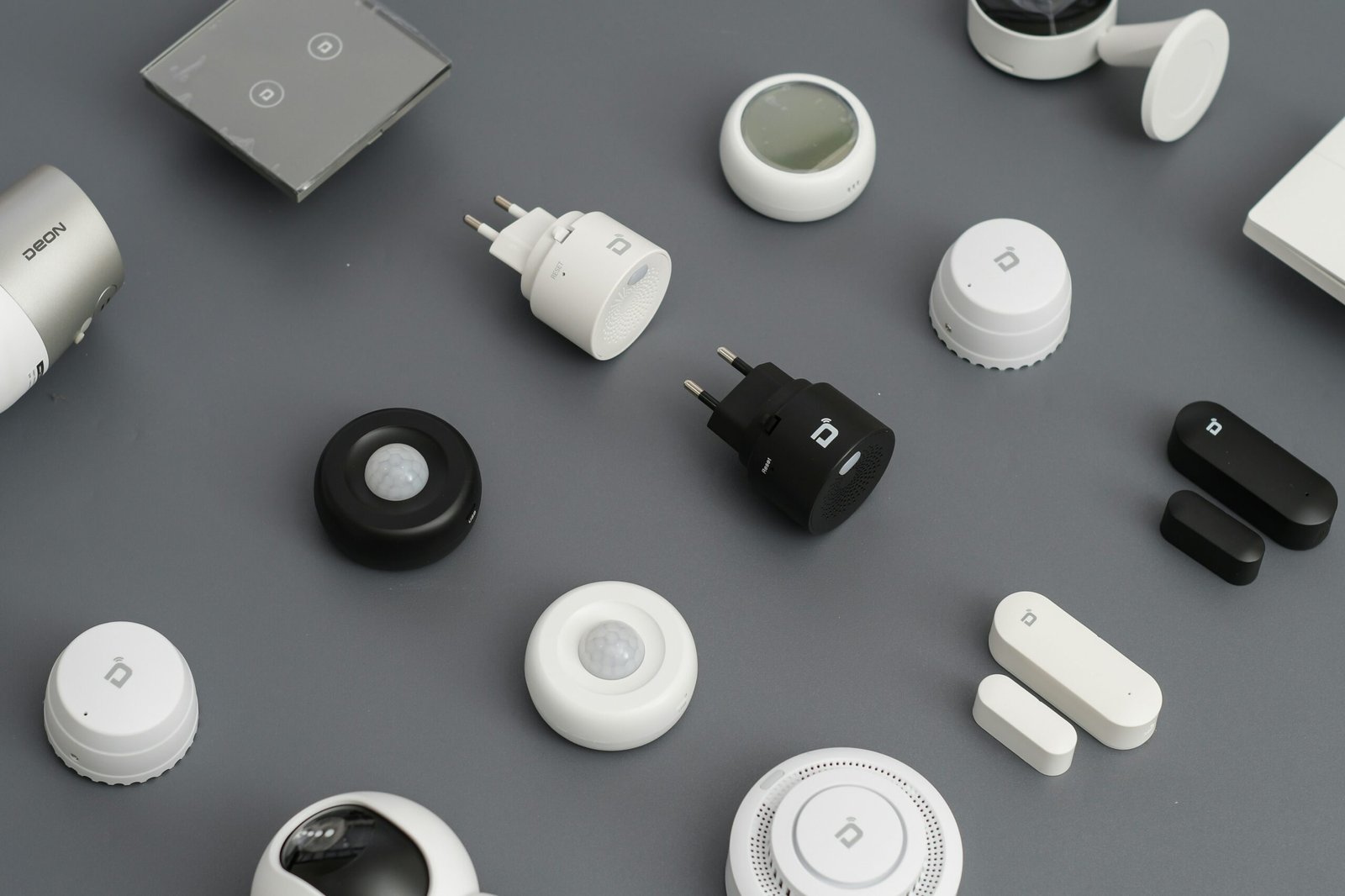Introduction to AI-Powered Smart Homes
The concept of AI-powered smart homes represents a significant milestone in the evolution of domestic technology. Over the past decade, advances in artificial intelligence (AI) have brought forth an array of smart devices designed to enhance the comfort, security, and efficiency of our homes. These devices, which include smart thermostats, security cameras, lighting systems, and appliances, rely on AI algorithms to gather data, learn user preferences, and execute tasks autonomously or through voice commands. As we approach 2025, the integration of AI in home environments is expected to transform the way we interact with our living spaces.
The journey toward smart homes began with the introduction of basic automation tools, which allowed for remote control of electronic devices. However, the integration of AI has made these tools more sophisticated and intuitive. Smart home devices are now capable of understanding context and adapting to individual lifestyles. For instance, a smart thermostat can learn the temperature preferences of residents and adjust heating or cooling automatically, thereby optimizing energy consumption while ensuring comfort. Such innovations illustrate that convenience and efficiency are the cornerstones of AI-powered living.
The future of smart home technology hinges on the ongoing development of AI capabilities. With improvements in machine learning and natural language processing, devices will not only execute commands but also anticipate user needs. For example, AI can analyze data from household usage patterns and make proactive recommendations or adjustments without direct input. This marks a shift from a manual approach to a more automated, responsive living environment, ultimately enhancing daily life. In the coming years, the proliferation of AI-powered smart homes could redefine the standards of quality living, making home life more efficient and enjoyable.
Key Trends in Smart Home Technology by 2025
As we approach 2025, the landscape of smart home technology is anticipated to experience significant transformations. One key trend is the increased integration of Artificial Intelligence (AI) in home appliances. More smart devices will leverage AI to learn user preferences, anticipate needs, and provide tailored solutions that enhance convenience and functionality. As AI becomes more sophisticated, smart appliances will not only execute commands but will also engage in proactive interactions with users, creating seamless experiences.
Another notable development is the rise of interconnected ecosystems. The notion of a smart home is evolving beyond isolated devices to a cohesive network of interlinked appliances and systems. This interconnectedness allows different devices to communicate effectively, providing a unified control interface for homeowners. As more manufacturers adopt open standards and protocols, consumers will enjoy the benefits of enhanced interoperability, allowing for smoother integration of products from various brands.
Advancements in machine learning are expected to further personalize user experiences. By analyzing data collected from daily activities, smart home devices will configure themselves to meet the specific needs of individuals within a household. This degree of customization not only elevates user satisfaction but also promotes efficient energy use, ultimately contributing to sustainability efforts.
In addition, there will be a growing emphasis on energy efficiency and sustainability in the design and functionality of smart home devices. More homeowners are becoming environmentally conscious, which is pushing manufacturers to develop eco-friendly technologies. Features such as energy monitoring, automated energy conservation, and smart scheduling for appliances will enable users to reduce their energy consumption and carbon footprint effortlessly.
These trends collectively indicate that smart home technology in 2025 will be characterized by intelligent, personalized, and sustainable living solutions, redefining how we interact with our homes and, in turn, improving daily life.
Impact on Daily Life: Enhancements and Challenges
The integration of AI-powered smart home devices is poised to significantly transform daily living by offering a range of enhancements that will improve convenience, security, and health monitoring. Home automation systems, equipped with AI algorithms, can streamline household tasks such as lighting, heating, and appliance control, allowing homeowners to manage their environment from a single interface, often via mobile applications. This convenience is not only time-saving but also contributes to energy efficiency by allowing for optimized usage of resources.
In terms of home security, smart devices such as cameras, alarms, and smart locks provide advanced monitoring capabilities. These systems enable users to receive real-time alerts and remotely access surveillance feeds, thereby enhancing the overall safety of the residence. Moreover, health monitoring devices that track vital signs and detect potential health issues are becoming increasingly sophisticated, providing users with invaluable insights into their well-being.
Despite these enhancements, the rise of smart home technology raises several challenges and concerns. Privacy issues are paramount, as the vast amounts of data collected by these devices can lead to vulnerabilities if not adequately protected. Users must be vigilant about how their information is stored and shared, especially with third-party services. Data security also becomes a critical concern, as any breach could compromise sensitive personal information.
Additionally, the reliance on AI devices necessitates a stable and fast internet connection, which may not be accessible to everyone. In areas where connectivity is unreliable, the effectiveness of managing smart home systems can be severely hindered, leading to frustration for users. As we navigate the advancements of AI-powered smart home devices, it is essential to balance the benefits with an awareness of the potential drawbacks involved in this technological evolution.
The Future Outlook: What to Expect in 2025 and Beyond
The rapid evolution of artificial intelligence (AI) and smart home technology is poised to reshape our living environments dramatically by 2025 and beyond. As we look ahead, several key advancements are anticipated to significantly enhance the functionality and integration of AI-powered smart home devices. One prominent trend is the emergence of more sophisticated AI algorithms, which will enable devices to learn from user behavior, preferences, and routines. This capability could lead to a highly personalized living experience where smart home systems anticipate needs and make proactive adjustments.
Furthermore, the integration of advanced sensors and data analytics will enhance smart homes’ interconnectivity. Homeowners can expect a seamless communication network among devices, resulting in unified automation processes and improved energy management. For instance, an AI-driven system could optimize heating, cooling, and lighting based on occupancy patterns, ultimately contributing to energy efficiency and cost savings.
Another noteworthy consideration is the increasing role of consumers in shaping the market landscape. As buyers become more knowledgeable and discerning about smart home technologies, their preferences will drive innovation. Companies will be compelled to create user-friendly interfaces and ensure compatibility among various devices to maintain market competitiveness. Additionally, consumer demand for privacy and security features will necessitate that manufacturers prioritize these aspects in their product offerings.
Equally important is the establishment of regulations and standards to govern the ethical use of AI technologies. As smart home devices collect vast amounts of personal data, there is a growing need for regulatory frameworks that protect user privacy and ensure data security. Policymakers must develop guidelines that keep pace with technological advancements, ultimately fostering consumer trust in AI-powered solutions. In conclusion, the future of AI and smart home devices is promising, driven by technological advancements, consumer preferences, and regulatory frameworks aimed at ethical considerations.









